9 Common Travel Scams Travelers Should Know in The Bahamas
Avoid all the crafty con artists in The Bahamas with these tips from Diedre McLeod, who has navigated all the scams herself and now shares her advice.
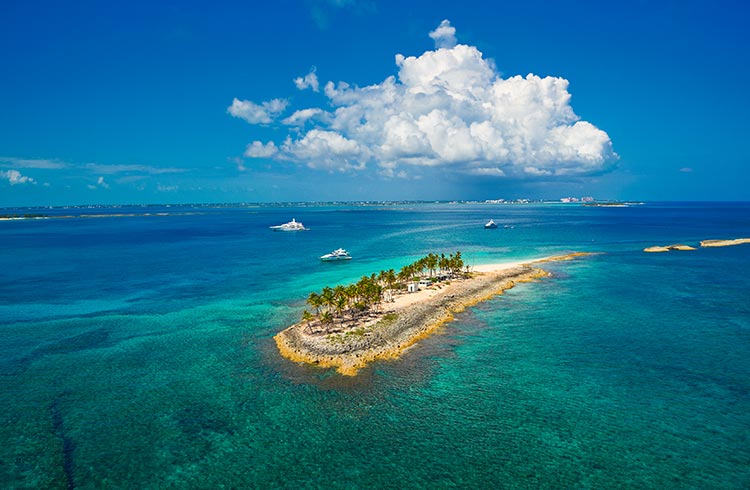 Photo © Getty Images/Francisco Martinez / EyeEm
Photo © Getty Images/Francisco Martinez / EyeEm
There’s a general saying among travelers that “there are more good people in the world than bad”. After spending some of my childhood in The Bahamas and forming deep friendships, I can confirm this statement is true of this picturesque chain of islands.
However, you might also meet a helpful local who turns out to be not so genuine. Before you know it, you’ve been scammed in The Bahamas.
Stay safe by spotting these common scams in The Bahamas:
- Bump and grab scam
- Taxi scams
- Accommodation scams
- Timeshare scam
- ATM scams
- Jet ski scam
- Hair braiding scam
- Fraudulent tours and tour guides
- Higher prices for visitors
1. Bump and grab scam
This happens mainly in crowded areas of The Bahamas. Someone distracts you by bumping into you and then promptly proceeds to pick your pocket.
How to avoid it: Don’t carry your valuables in one place, use anti-theft backpacks or walk with your backpack in front of you. You’ll more likely see if someone is trying to get into your bag.
2. Taxi scams
Taxis are generally well-regulated, especially in Nassau and Freeport. Most taxis have meters so there should be little need to negotiate fees. If a taxi driver claims his meter is broken or does not want to turn it on, insist it is turned on or take another taxi.
Look out for taxi meters running very quickly and so you are likely to be overcharged. Check with your hotel or get the estimated fare for your journey beforehand so you know what to pay.
Some taxi drivers take a longer route to increase the cost of the ride. Use Google Maps or Maps.Me (download prior to leaving an area with Wi-Fi) to follow along, and if you notice the driver is going a different route, point to your map and insist they go that way.
How to avoid it: This is a no-brainer, but never take unlicensed taxis. No matter how good the deal seems, it’s always better to err on the safe side and go with a licensed, reputable taxi.
3. Accommodation scams
Choosing the right place to stay comes down to understanding your needs, knowing your budget and using the right platforms to book your accommodation.
If you are being asked to make payments offline or off the platform, this should signal that something may be wrong. Paying offline or off-platform increases your risk of paying for an accommodation that may not exist or paying a higher price.
How to avoid it: Make sure to book reservations or home stays on reputable websites to avoid being scammed and paying too much.
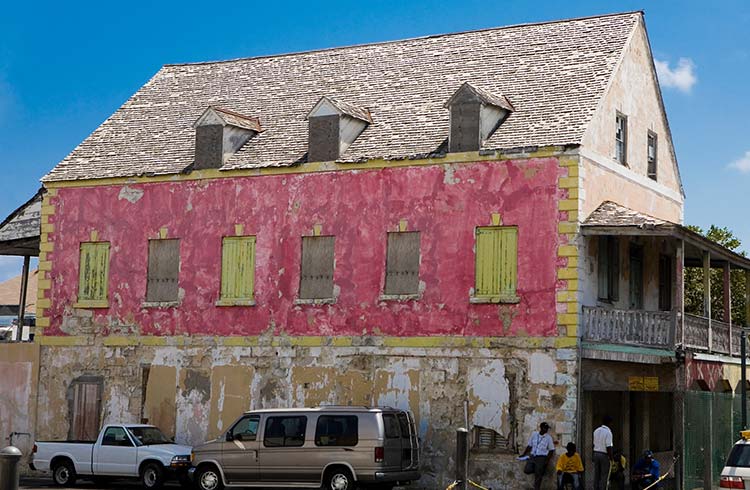
4. Timeshare scam
Buying a timeshare means you get to co-own a share, or piece, of a resort or vacation home to use at least once a year. Travelers are always on the lookout for the next best vacation and timeshare scammers are always on the lookout for eager travelers.
How the scam works: Someone will offer you a free meal if you spend 60-90 minutes of your time in a timeshare presentation. After you say yes, that’s when the real scam begins. Misleading claims about the timeshare and high-pressure sales tactics will be used to get you to say yes to owning a timeshare. Be careful not to say yes impulsively. If you’re not allowed time to reconsider and are pressured to answer on the spot, then you might be caught up in a scam.
5. ATM scams
Someone approaches the ATM just as you are about to use it and offers friendly advice on avoiding fees. This is usually the start of what I call the “Friendly ATM User” scam. The friendly local will then wait around and rob the traveler of cash as soon as they exit the ATM.
Unsuspecting travelers often fall for this trick, mistaking ulterior motives for kindness. This tends to happen at night in secluded areas.
How to avoid it: Don’t use ATMs at night, and choose ones that are located in busy areas and attached to a bank.
6. Jet ski scam
Many jet ski hire operators in The Bahamas are unregulated. They overcharge or under-deliver (calling you back before your time is complete) and may not follow proper safety regulations.
How to avoid it: Make sure you rent a jet ski with a reputable operator; one that’s recommended by your hotel or the tourist office. This scam is likely to happen in the resort areas such as Paradise Island where there are plenty of travelers.
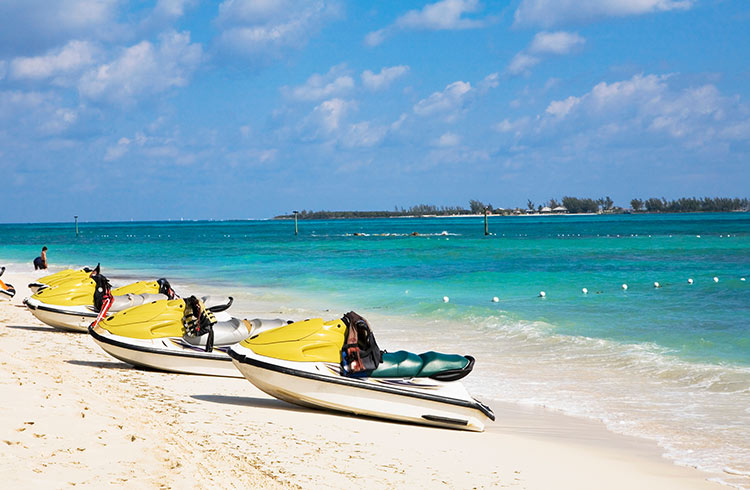
7. Hair braiding scam in The Bahamas
Getting your hair braided (or cornrow as it’s called locally) is a popular way to appreciate Afro-Caribbean culture. Cornrow is deeply embedded in Bahamian culture and a great way to express yourself via your hairdo.
Unfortunately, visitors are sometimes tricked into paying high prices to get their hair braided.
A fee will be set at the beginning, then when the hairstyle is done the visitor is told the fee must be drastically increased because of the time taken or length of hair.
How to avoid it: Be sure to verify upfront that the fee charged considers estimated time and the length of your hair. Negotiate a price you are comfortable with before you get started.
8. Fraudulent tours and tour guides in The Bahamas
Offering fake tours is a popular scam. Visitors who are eager to capitalize on their precious time on the island are more likely to fall prey to a charming but overbearing guide who makes promises of an unforgettable tour.
If it sounds too good to be true, then it probably is. On these fraudulent tours, visitors are often taken to sub-par places and then forced to pay inflated guide rates.
How to avoid it: Avoid this by sticking to licensed guides and tours that are promoted by the tourism board.
9. Higher prices for visitors
This isn’t so much a scam because it’s become common practice. You might expect prices to be higher in areas that have a high-density of travelers, but vendors at marketplaces where prices are negotiated sometimes hike the prices of their products when dealing with visitors.
The Straw Market in Nassau often has vendors who double their prices to unsuspecting travelers who are fresh off the boat.
Use your negotiating skills: A general rule of thumb is to slash the price in half to start your negotiations.
In the end, the majority of trips to The Bahamas are trouble-free and there is usually no need to be overly cautious. That said, it is always better to be alert, safe and prepared for the worst.
Most importantly, don’t forget to buy travel insurance. Get a quote below!
Related articles
Simple and flexible travel insurance
You can buy at home or while traveling, and claim online from anywhere in the world. With 150+ adventure activities covered and 24/7 emergency assistance.
Get a quote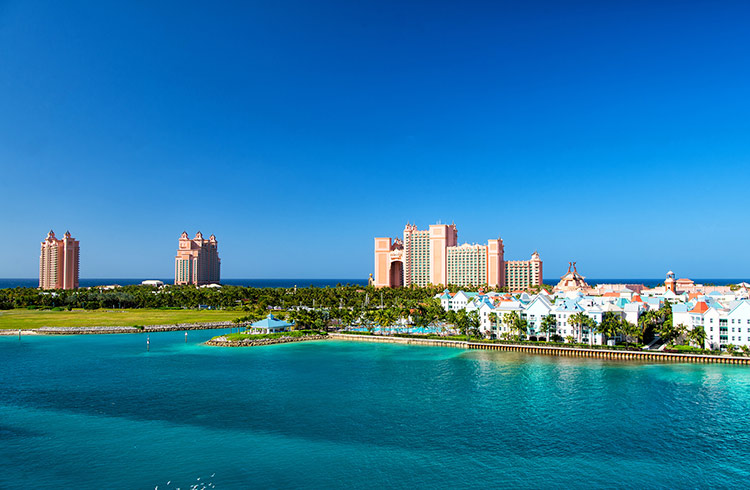
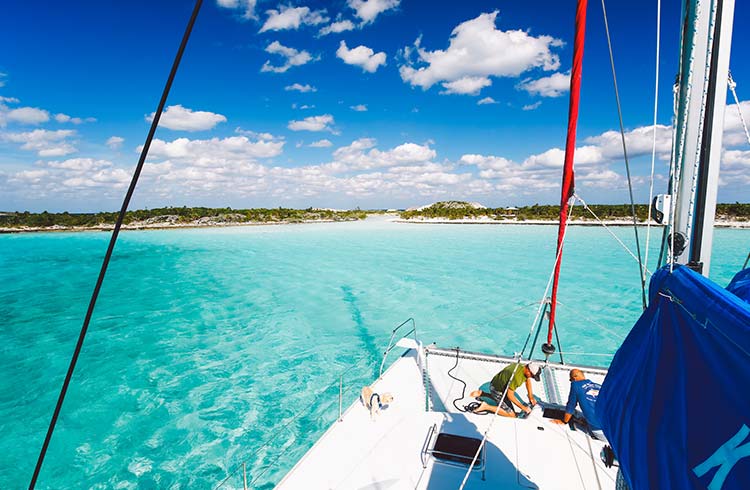
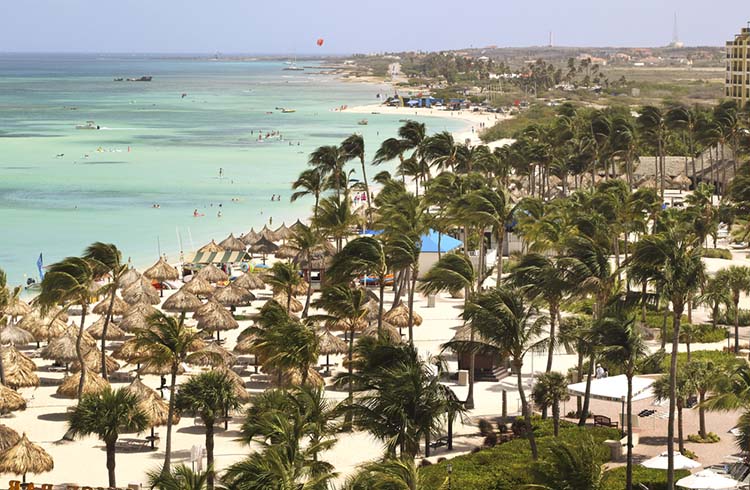
No Comments